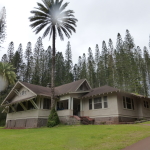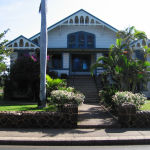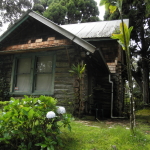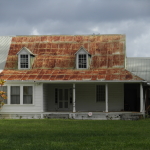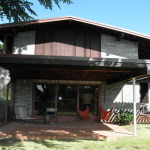Here’s a status update as we enter the half-way mark for the 2015 legislative session.
Dear Members and Friends,
We are pleased to share with you a status update on historic preservation-related bills at the State Legislature. The session is at the half-way mark, when the initial flurry of bills has been reduced to a more manageable number.
At the start of the legislative session in January, over 70 bills were introduced that affected historic preservation. Historic Hawai‘i Foundation participates in the legislative process by tracking and responding to bills and resolutions with the potential to affect historic sites and buildings, including measures related to incentives for preservation, regulations to protect historic properties, and more general measures related to planning, permitting, environmental review, arts and culture.
By the mid-point of the session, when bills cross between the Senate and the House, there were about 20 bills still active. Of those, four have the most direct effect on protection of historic resources. As each measure moves through the legislative process, it is amended and revised in ways that are not always predictable. Our testimony and position on the bills also changes as the contents shift, so the comments are relevant to current draft.
- Two of the bills (SB877 and HB830) attempt to limit the applicability of the state historic preservation program to exclude residences, except for those that are designated on the register of historic places. The bills’ proponents—led by the Building Industry Association—proposed redefining “historic property” to exclude single-family residences, claiming that houses cannot and should not be considered historically significant unless they are among the small percentage designated by the state.
Historic Hawai‘i Foundation opposes these measures as currently drafted. The relevant issue is not whether or not residences are or can be historic—they clearly are part of the architectural, social and economic history of the Hawaiian Islands. Excluding homes, neighborhoods and districts from the preservation program would inevitably lead to destruction of significant historic places. HHF has testified that treating one category of historic property differently from all others is arbitrary and should not be pursued.
Instead, we feel that the bills should focus on the issue of what constitutes appropriate project review. Exempting minor projects from the review process would both address the concerns about the burden on homeowners and provide more certainty for protection of historic properties.
- A third bill (SB 504) is currently an appropriations bill to provide funding to the State Historic Preservation Division to address historic residences. We support the idea of providing resources to SHPD for inventory or survey, as well as any additional administrative remedies that are needed, such as working with the counties on the permit routing and tracking, or developing a list of minor project types that do not adversely affect historic properties. We continue to monitor this bill to see if it remains in the current form.
- The final bill (SB 611) is also an appropriations bill to provide funds for the digitization of historic preservation records and positions in the State Historic Preservation Division. HHF supports this measure.
You can see the text of the bills, hearing notices, previous testimony, and committee reports on the State Legislature’s website: http://www.capitol.hawaii.gov/
HHF’s public policy and legislative activity is guided by the Board of Trustee’s policy on political and legislative activity. HHF is nonpartisan in political matters, and does not endorse or oppose any candidate or party for public office. We support a balance of preservation incentives, regulations and public-private partnerships to encourage the preservation and rehabilitation of historic properties.
As members of Historic Hawai‘i Foundation, your steadfast support makes this work possible, and we cannot thank you enough for all you do on behalf of Hawaii’s historic places.
With warm aloha,
Kiersten Faulkner
Executive Director
Some of these historically significant homes are designated on the state historic register.

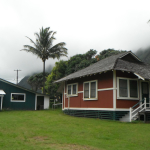
Some are not.


